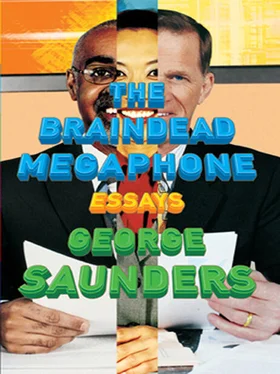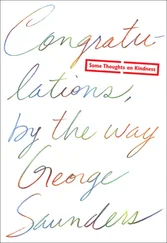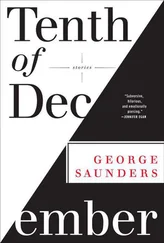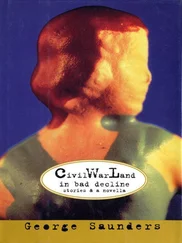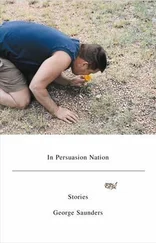The authors’ conclusion (“It is perhaps not inaccurate to state that, within this particular fluid-nation, loyalty to the fluid-nation may at times surpass loyalty to the parent geo-nation”), along with the respondent’s professed willingness to subjugate important geo-national priorities, and even accept increased national security risks, in order to avoid violating the Cohering Principle of their fluid-nation (i.e., not killing for an abstraction), led to the creation of a new category of fluid-nation, the so-called Malignant fluid-nation.
At this time — coincidentally but fortuitously — there appeared the work of Elliott, Danker, et al., who made the important (and at the time startling) discovery that multiple fluid-nation citizenships did not occur in random distributions. That is, given a known fluid-nation citizenship, it was theoretically possible to predict an individual’s future citizenships in other fluid-nations, using complex computer modeling schemes. The authors found, for example, that citizens of Over-Involved Mothers tended to become, later in life, citizens of either Over-Involved Grandmothers or (perhaps paradoxically) Completely Disinterested Grandmothers, with high rates of occurrence observed also in Women Who Collect Bird Statuary and Elderly Women Who Purposely Affect A “Quaint Old Lady” Voice.
The implications of these data vis-à-vis the so-called Malignant fluid-nations were clear. Work immediately began within the discipline to identify and develop innovative new technologies for the purpose of identifying those fluid-nations most likely to produce future citizens of Malignant fluid-nations. The most sophisticated and user-friendly of these tools proved to be the Rowley Query Grid, which successfully predicted the probability that citizens of Tends To Hold Him/Herself Aloof From The Group (previously thought to be Innocuous) would, in time, evolve into citizens of People Reluctant To Kill For An Abstraction. Subsequently, dozens of these Nascent-Malignant fluid-nations were identified, including Bilingual Environmentalists, Crusty Ranchers, Angry Widowers, and Recent Immigrants With An Excessive Interest In The Arts.
Needless to say, these findings resulted in dramatic improvement in both the National Security Index and the Unforeseen Violence Probability Statistic.
Entire research departments have now embarked on the herculean task of identifying all extant fluid-nations, with particular emphasis, of course, on links to known Malignant fluid-nations. The innovative work of Ralph Frank, in which fifty individuals waiting for a bus in Portland, Oregon, were, briefly and with their full consent, taken into custody and administered the standard Fluid-Nation Identifier Questionnaire, indicated the worrisome ubiquity of these fluid-nations. At least ninety-seven separate fluid-nations were detected within this random gathering of Americans, including: Now-Heavy Former Ballerinas; Gum-Chompers; People Who Daydream Obsessively Of Rescuing Someone Famous; Children Of Mothers Who Were Constantly Bursting Into Tears; Men Who Can Name Entire Lineups Of Ball Teams From Thirty Years Ago; Individuals In Doubt That Someone Will Ever Love Him/Her; and Individuals Who Once Worked, Or Considered Working, As Clowns. A closer analysis of the fluid-nations identified indicated that nearly 50 percent of these had been, would soon be, or very possibly could eventually be linked to People Reluctant To Kill For An Abstraction, or to another Malignant fluid-nation.
It is thus no longer a question of whether a large number of Americans belong to problematic fluid-nations; it is, rather, a question of how willing Americans are to freely confess these citizenships, and then undergo the necessary mitigative measures, so that the nation need have no doubt about their readiness to respond in an emergency.
One need only imagine the catastrophic results, should the American membership of one of the more ubiquitous fluid-nations (Parents Of Children Inclined To Cry During Thunderstorms, for example, or Inseparable Married Couples Who Whisper Together Late Into The Night) pause during some national crisis to consider the effects of the national protective action upon their fellow fluid-nation members who happened to be residing within the geo-nation which was at that time posing the threat to American security (i.e., the “enemy nation”).
Although much work remains to be done, most Americans now recognize the tremendous danger posed by these fluid-nations, are energetically examining themselves and their acquaintances for the residual presence of any questionable loyalties or allegiances, and have come to recognize that national security issues are most efficiently addressed, not by the average citizen, who is (understandably) somewhat underinformed and distracted, but by the well-trained, highly skilled professionals working within the Patriotic Studies discipline.
This is not, of course, just an American issue; leaders of other geo-nations have now begun to recognize the potential gravity of this threat. Throughout the world, at any given moment, the justifiable aims of legitimate geo-nations are being threatened by reckless individuals who insist on indulging their private, inscrutable agendas. The prospect of a world plagued by these fluid-nations — a world in which one’s identification with, and loyalty to, one’s parent geo-nation is constantly being undermined — is sobering indeed. This state of affairs would not only allow for, but require, a constant, round-the-clock reassessment of one’s values and beliefs prior to action, a continual adjustment of one’s loyalties and priorities based on an ongoing evaluation and reevaluation of reality — a process that promises to be as inefficient as it is wearying.
The above summary has, of necessity, been brief. It will be left to future scholars, working in a time of relative calm, once the present national crisis has receded, to tell the full story, in all the rich detail it deserves.
At twenty-three, recent engineering grad that I was, I had read virtually nothing. But there was hope: I was living four out of every six weeks in the Sumatran jungle. On leave in Singapore, I loaded up on books to take back to the seismic crew. This was serious business. If the books ran out before the four weeks did, I would be reduced to reading the same 1979 Playboy over and over, and/or watching hours of wayang theater on the bunkhouse television. Occasionally one of our contractors would bring porn, which often involved animals. We were obliged to watch and be grateful, then discuss the details of certain scenes with him. This contractor had once locked a fever-struck employee in a shed, where he died. This contractor was supposedly magically protected from all attacks on his person. He had so far survived three shootings and a hatchet attack, which was why, wittily, he was called Hatchet.
I was, to understate the case, an untrained reader. My understanding of literature at this time was: great writing was hard reading. What made something great was you could barely understand it. A scene I’d been imagining as taking place indoors would suddenly sprout stars and a riverfront. At a fictional dinner party at which I’d understood there to be three people present, six were suddenly required, based on the appearance of three unfamiliar names. In addition to the difficulties posed by my dullness, I also selected books oddly. The writers I preferred were writers whose English was least like mine. I believed great writing was done in a language that had as little as possible to do with the one I spoke. The words were similar but arranged more cleverly, less directly. A good literary sentence was like a floor with a hole hidden in it. You dropped into the basement and, scratching your head, thought: “Why’d he say it that way? He must really be a great writer.” Plain American language was like the pale ineffectual relative you took for granted: always there, a little embarrassing. Plain American was fine for getting around your dopey miniature world, cashing checks and finding restaurants and talking about television and so on, but when the real work of Art was required, you hauled out the fancy language, the one nobody used. I had started writing a little by this time, sneaking back into the Office after-hours to produce such early, Asia-centric masterpieces as “Be Not Afraid in Thy Deep Monotheistic Veritable Heart of the Jungle” and “Black River That Runs Through Various Metaphorical Villages.” Writing was, at this stage in my development, the process of trying to do whatever was most unnatural. Art was that thing you couldn’t quite reach. The hope was that someday, when enough failure had been logged, a miracle would happen, and one would briefly be launched above one’s station, suddenly able to write in that impossible, inscrutable, nineteenth-century language of the masters, and this miracle would happen often enough that one could eventually cobble together the two hundred or so pages it took to make a Real Book.
Читать дальше
